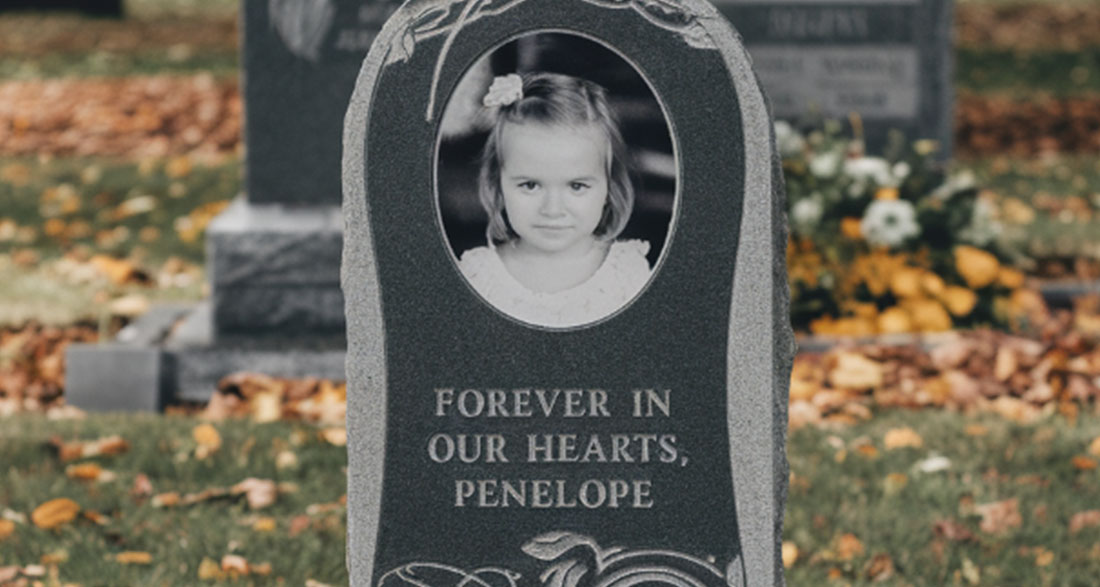It’s been two years since I lost my dad to cancer—two years, four days, and what feels like a lifetime of grief. I remember the day we found out about his stage IV lung cancer as if it happened yesterday. It was like the world suddenly stopped, trapping us in a nightmare we couldn’t escape from. The doctors started treatment right away, but deep down, we all knew the battle was already lost.
My dad fought with everything he had, but in the end, cancer won. I found out he passed away through a phone call from my mom while I was at home in the city. Her voice, usually so strong, broke as she said, “Penny… he’s gone.” The memory of that moment is a blur of tears and frantic packing.
My husband, Andrew, drove us to my mom’s house. All the way there, I kept expecting my dad to walk out of the front door with a smile and open arms. But that didn’t happen. At the funeral, I felt completely disconnected, like I was watching someone else’s life. As the casket was lowered into the ground, it felt like a part of me was being buried with him.
People always say time heals all wounds, but the pain of losing my dad is still so fresh. Even two years later, it feels like I just got that terrible phone call yesterday. In the beginning, I could barely function. Every night, I cried myself to sleep, replaying memories of Dad in my head—teaching me how to ride a bike, sneaking me an extra scoop of ice cream, beaming with pride at my college graduation. The grief was so overwhelming that I started questioning everything. Why did this happen to us? Was I cursed?
I couldn’t bear to go back to our hometown; every familiar face and street corner reminded me of Dad. I threw myself into work, trying to drown out the sorrow with busy days and meetings. Mom started visiting me instead, and I was relieved to avoid the painful memories. But recently, guilt began to gnaw at me. I knew I needed to go back and face the memories I had been avoiding. Last week, Andrew and I made the drive home, and my anxiety grew as familiar landmarks came into view.
We went to the cemetery first. Each step toward Dad’s grave felt heavier than the last. When I finally reached it, my legs gave out, and I collapsed in front of the headstone. I traced his name on the cold stone as tears streamed down my face. I was lost in memories and regrets when Andrew gently touched my shoulder, bringing me back to reality. “Penny, look over there,” he said softly.
I turned to see another headstone a few yards away, and my heart froze. It had my name on it: Forever in Our Hearts, Penelope. The photo was of me as a little girl, smiling as if I had the whole world figured out. I stared at the headstone, unable to believe what I was seeing.
This wasn’t a nightmare—I was wide awake, and this grave was real. My hands shaking, I called Mom. She answered on the first ring. “Mom, I’m at the cemetery, and there’s… there’s a grave with my name on it. What’s going on?”
After a long pause, Mom’s voice, eerily calm, replied, “I didn’t think you’d ever come back to see it.”
“What do you mean?” I asked, feeling more confused than ever.
“After your father passed, it felt like I lost both of you. You stopped visiting, stopped calling… I needed something to mourn.” She paused, then continued, “So, I bought the plot next to your father’s and had the headstone made. It was the only way I could cope.”
I was torn between anger and heartbreak. But something didn’t add up. Why hadn’t she mentioned this during her visits? Why pretend everything was normal? Then, it hit me—her constant worry about my health, her frequent visits, her insistence that I move back home. She wasn’t just grieving; she was preparing for something else. A chill ran down my spine as I remembered the pills she’d given me last year. Could she have been trying to…?
I needed answers. “Mom, I’ll be over soon,” I said, hanging up before she could respond. As we drove to her house, the streets that once held fond memories now filled me with dread. When we arrived, Mom greeted me with a smile, as if she had been expecting us. Inside, the house was just as I remembered, except for one thing: a small shrine with my photo, candles, and fresh flowers. My stomach turned. “Mom, this has to stop,” I said, my voice shaking. “Why did you do this?”
“I couldn’t let you leave me like your father did,” she replied. “I needed to keep you close. This was the only way I knew how.”
It was clear that this wasn’t just grief—it was an obsession. I knew she wouldn’t let me live my life if I didn’t do something. I suggested she move closer to us so we could see each other more often. She hesitated but finally agreed. A week later, we watched as the cemetery workers removed the headstone with my name on it, and I helped Mom dismantle the shrine in her living room.
The transition hasn’t been easy, but I’m glad I visited Dad’s grave that day. It allowed me to see the strange world Mom had been living in, and now, for the first time in years, it feels like we’re moving in the right direction. Dad’s memory will always be with us, but now it’s a source of strength, not pain.
Share your thoughts in the comments down below!

